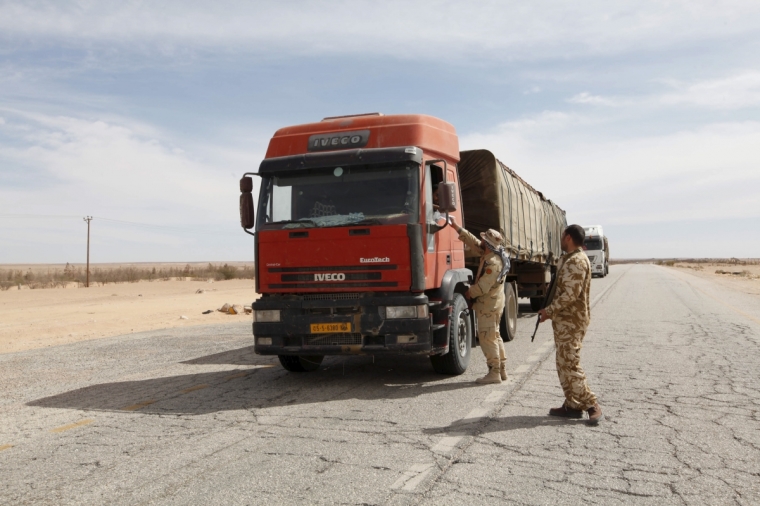

Islamic State has greatly expanded its control over territory in Libya and the militants are claiming to be the key defense for the North African state against foreign military intervention, United Nations sanctions monitors said.
In their annual report to the U.N. Security Council, which was released on Wednesday, the monitors also said Libya has become more attractive to foreign fighters who mainly arrive through Sudan, Tunisia and Turkey.
The United States has carried out air strikes in Libya targeting Islamic State, also known as ISIL. A U.S. air strike in the eastern city of Derna in November killed Islamic State's previous leader in Libya, known as Abu Nabil.
The U.N. experts also said they had received information about the presence of foreign militaries in Libya supporting efforts to combat Islamic State, but did not name the countries as it was still investigating.
"The rise of ISIL in Libya is likely to increase the level of international and regional interference, which could provoke further polarization, if not coordinated," said the U.N. experts who monitor sanctions on Libya.
"In anticipation, ISIL has been spreading a nationalistic narrative, portraying itself as the most important bulwark against foreign intervention," they said.
Islamic State has taken advantage of a political and security vacuum following a 2011 uprising that toppled the country's leader, Muammar Gaddafi. Western officials have estimated the number of IS fighters to be as high as 6,000.
Late last year the U.N. experts said Islamic State had between 2,000 and 3,000 fighters. In the latest report they said "significant numbers of foreign fighters" arrived in the Islamic State stronghold of Sirte.
A senior Islamic State militant, described in an interview released by the SITE monitoring group as the new leader of the jihadists' Libyan offshoot, said the organization is getting "stronger every day."
The U.N. experts investigated whether Islamic State militants could use a backup of Libya's banking system in Sirte to misappropriate funds, but all banking employees consulted said the system was either damaged or outdated.
"Consequently, control over Sirte does not give ISIL access to State finances or to the wider SWIFT system," the experts reported. SWIFT is a member-owned cooperative that banks use for account transfer requests and other secure messages.
"It is, however, likely that the site continues to hold all Libyan historic banking data, which could prove useful to anyone seeking to mask fraudulent transactions," they said.